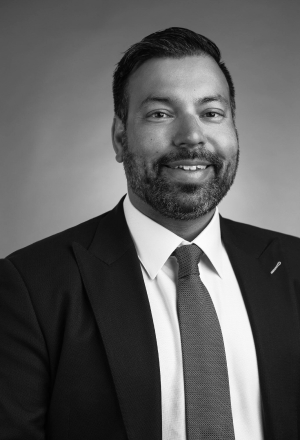According to the Transport Canada National Collision Database (NCDB), motorcyclists accounted for roughly 10 percent of all traffic fatalities and 12 percent of all serious injuries in a recent year. Many motorcycle accidents are the result of motorists behaving dangerously on the roads. In reckless driving motorcycle accidents, a vehicle driver or motorcyclist’s irresponsible actions can cause severe harm to themselves or others, along with significant financial losses.
The Vancouver motorcycle accident lawyers at Warnett Hallen LLP can determine your legal options if you or someone you love suffered severe injuries in a reckless driving crash. Our accomplished lawyers have more than 20 years of combined legal experience and an established record of success for our clients.
Contact our Vancouver office today for a free consultation with a reckless driving motorcycle accident lawyer.
What is Reckless Driving?
Two important reckless driving laws apply in British Columbia. The first is the crime of careless driving under the Motor Vehicle Act. Careless driving is loosely defined as driving without care or consideration for others around you or driving at an excessive speed for traffic conditions. The penalties for reckless driving are relatively low, usually no more than a fine if no one was seriously injured.
The more serious crime related to reckless driving concerns dangerous driving, an offense under Canada’s Criminal Code. Dangerous driving is defined as driving in a manner unsafe toward other drivers and the public at large. A vehicle driver can receive a prison sentence for a dangerous driving conviction if they seriously injure or kill someone in an accident.
Some acts that could be considered careless or dangerous driving include:
- Speeding
- Driving while impaired by drugs or alcohol
- Aggressive turns or lane changes
- Failure to use arm signals when turning or merging
- Failure to yield the right-of-way
- Failure to stop at a stop sign or red light
- Weaving through traffic
- Lane splitting
- Racing other vehicles
- Riding the motorcycle in an improper manner
Motorcycle Safety Regulations in British Columbia
According to information from the provincial government, all motorcycle riders and passengers in British Columbia must adhere to the following rules.
- All operators and riders must wear a helmet at all times. The helmet must meet government-mandated safety standards.
- Motorcycle riders and passengers must show their helmets when ordered by a peace officer.
- The person operating a motorcycle must be seated astride the driver’s seat.
- All motorcycle passengers must be seated behind the driver, astride the passenger’s seat with their feet on footpegs, floorboards, or sitting in a sidecar.
- Motorcycle operators are responsible for ensuring that riders younger than 16 are properly seated and have compliant helmets.
How to Avoid Motorcycle Reckless Driving
Here are some tips for motorcyclists to avoid reckless driving and prevent traffic collisions:
- Always ride sober — Alcohol and drugs can dull your reflexes, affect your judgment and perception, and increase fatigue. All of these factors make it harder to avoid a motorcycle accident.
- Ride in groups — Motorcycles are smaller than other motor vehicles, making them harder to see. This increases the risk of other drivers striking you when turning, merging, or changing lanes. Riding in a group makes you more visible to other drivers. And if you’re hurt in a crash, riding with others may improve your chances of someone else notifying the authorities.
- Always wear a helmet — It’s the law. Beyond that, helmets are critical in protecting operators and passengers from traumatic brain injuries in the event of a motorcycle crash.
- Wear protective gear — Jackets, heavy shirts, pants, and sturdy boots can shield you from the elements and any objects that might hit you as you’re riding. A helmet with eye protection and a face shield will prevent anything from striking your eyes or face directly while riding.
- Don’t speed — Speeding makes it harder to maintain control or stop safely in an emergency. Follow posted speed limits and brake slowly if you can.
- Be careful when turning or changing lanes — Motorcycles are prone to tipping over when turning because they have fewer points of contact with the road than cars. Watch your speed and the environment around you any time you’re negotiating a sharp curve.
Motorcycle Reckless Driving Injuries
Driving without due care and attention puts everyone on the road at risk of serious and catastrophic injuries, such as:
- Broken bones
- Soft-tissue injuries (damage to muscle, ligaments, tendons, etc.)
- Internal organ damage
- Internal bleeding
- Road rash
- Traumatic brain injury
- Facial injuries
- Neck and back injuries
- Spinal cord injuries, including paralysis
- Emotional distress, including PTSD
Compensation for a Reckless Driving Motorcycle Accident
The first step to recovering compensation after a reckless driving motorcycle accident is to speak with an experienced motorcycle accident lawyer. You will need to file a claim with the Insurance Corporation of British Columbia (ICBC), but a knowledgeable lawyer can help you understand the challenges of making an ICBC claim. Changes to insurance laws in British Columbia have made it harder than ever for injured claimants to obtain the motorcycle accident compensation they are owed.
All drivers in British Columbia are required to carry insurance through ICBC, which provides a certain amount of no-fault benefits to eligible drivers and passengers. The standard ICBC plan should cover most, if not all, of your medical bills after a motorcycle accident for all licensed riders, along with up to 90 percent of your missed wages (up to $100,000 in gross annual income).
However, there are certain limits to the standard ICBC coverage, and your policy may not cover all of your losses. But if a reckless driver caused the motorcycle accident and your injuries meet the B.C. severe injury threshold, you may be able to file a third-party insurance claim seeking additional compensation. This can include money for:
- Additional missed wages
- Reduced future earning capacity
- Damaged personal property
- Pain and suffering
- Emotional distress
While a first-party motorcycle accident claim works under a no-fault system, third-party claims require you to prove fault on the part of the liable party. A skilled lawyer from Warnett Hallen LLP can evaluate your case and tell you if you have a viable third-party claim after a crash.
Contact a Motorcycle Accident Lawyer in Vancouver, B.C.
Navigating the legal system and insurance claims process after a motorcycle crash can be lengthy and exhausting. Get legal advice from an experienced Vancouver motorcycle accident lawyer who can do the work for you. Warnett Hallen LLP will seek the compensation and justice you deserve.
Contact us today for a free initial consultation.
*Since May 1, 2021, British Columbia operates under a no-fault insurance system for motor vehicle accidents. Under this system, compensation for injuries and losses is handled through your own insurance provider (typically ICBC) regardless of who is at fault for the accident. Please note that the information on this page may not apply to your accident if it occurred after May 1, 2021. This disclaimer does not constitute legal advice.




